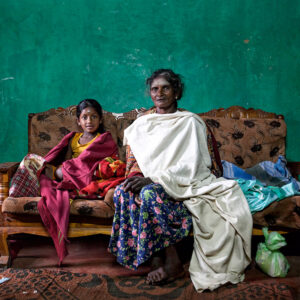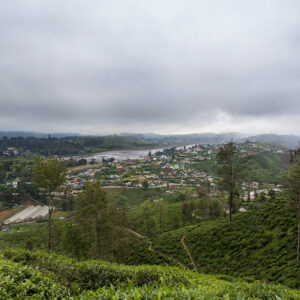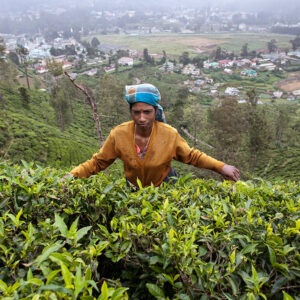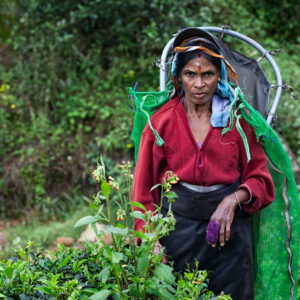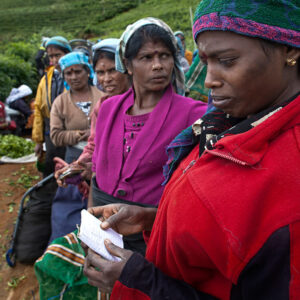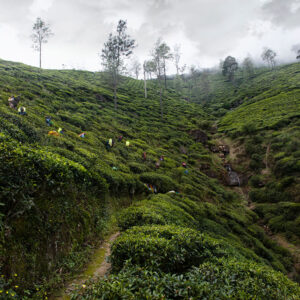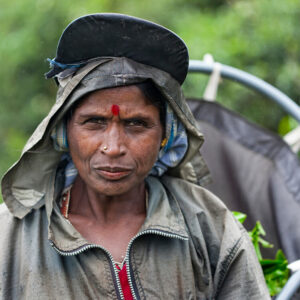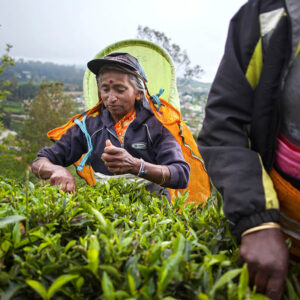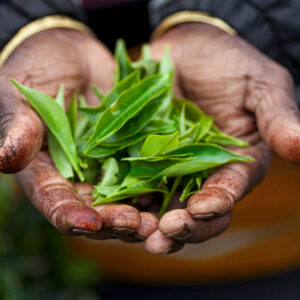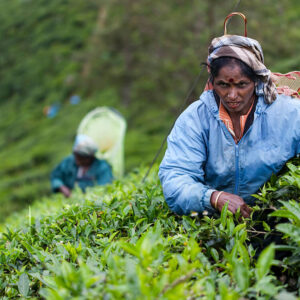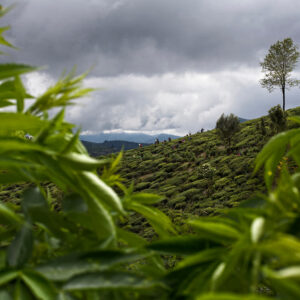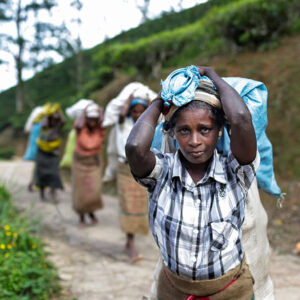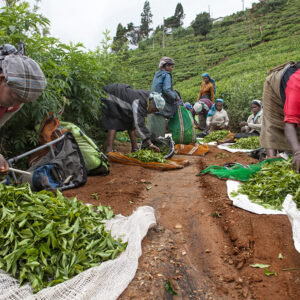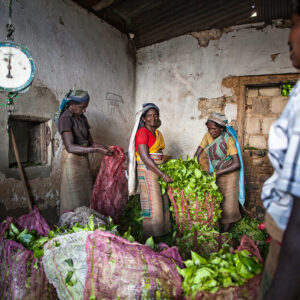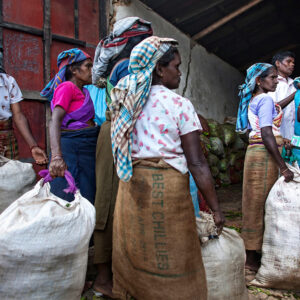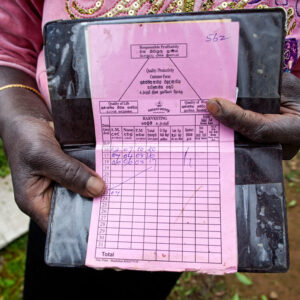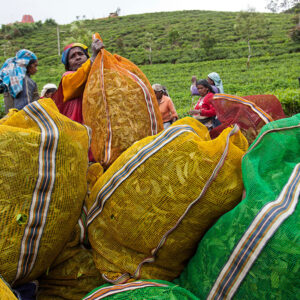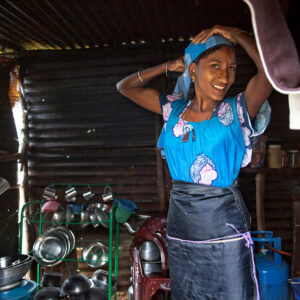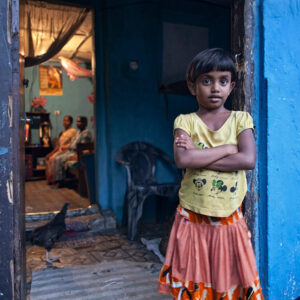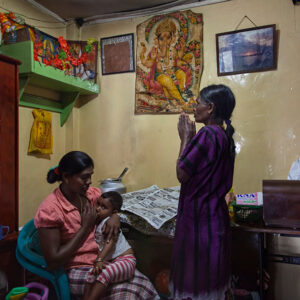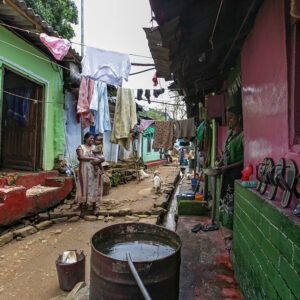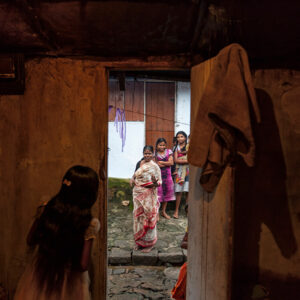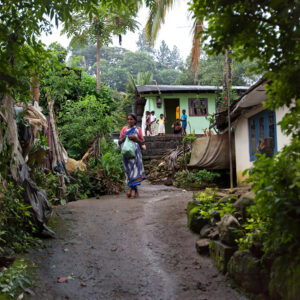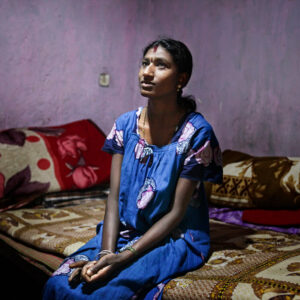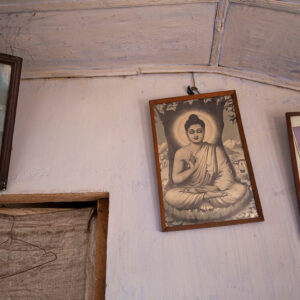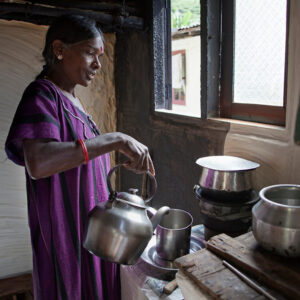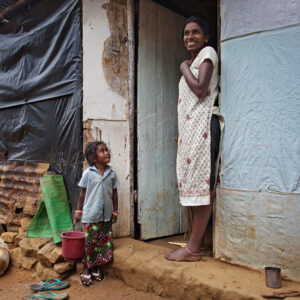Le madri del Ceylon
Questo progetto è stato realizzato in collaborazione con la fotografa Flavia Cortonicchi, collega, amica e compagna di viaggio.
Abbiamo viaggiato attraverso la “lacrima dell’India” con l’intento di fotografare le donne impegnate nelle piantagioni di tè, un tempo base dell’economia dello Sri Lanka, oggi elemento ancora importante.
Ma ciò che veramente ci ha mosso verso quella parte dell’Asia è ciò che ci accomuna come donne e come fotografe: l’interesse di incontrare altre donne di culture diverse.
Così, come altre volte, abbiamo riempito i nostri zaini di attrezzatura fotografica e tante ore di studio a tavolino. Ma come tutte le altre volte ciò che abbiamo incontrato ci ha stupite.
In Sri Lanka il lavoro della raccolta delle foglie di tè è affidato esclusivamente alle donne, principalmente di etnia Tamil, che vivono in villaggi a ridosso delle piantagioni, abitati dalle loro madri, che furono raccoglitrici, e dalle loro figlie, che saranno raccoglitrici.
Le ore lavorative sono lunghissime, tutto il tempo che la luce del giorno permette, non ci sono pause neanche per il pranzo, le condizioni di sicurezza sono inesistenti, il salario bassissimo.
Eppure queste donne non sembrano soffrire troppo questa situazione, poiché vivono nei propri villaggi, benché in condizioni igieniche disastrose, mantengono la propria lingua e preservano la propria cultura etnico – religiosa. Ed è stata proprio la distanza culturale il primo ostacolo che abbiamo dovuto affrontare, perché i Tamil non parlano né inglese né cingalese.
Abbiamo cercato, così, di seguire le donne raccoglitrici nelle giornate lavorative e nei loro villaggi, provando a comunicare le nostre intenzioni.
Dopo i primi giorni di normale diffidenza, siamo riuscite a instaurare dei rapporti in un linguaggio privo di alfabeto, che ci piace definire tutto “al femminile”.
Il risultato è “Le madri del Ceylon”, un progetto che consideriamo realizzato non solo da due fotografe, ma dall’aiuto e dalla disponibilità di una comunità di donne, le raccoglitrici Tamil.
ENGLISH VERSION
This project was created in collaboration with the photographer Flavia Cortonicchi, colleague, friend and travel companion.
We traveled through the “tear of India” with the aim of photographing women working in tea plantations, once the basis of Sri Lanka’s economy, which is still an important element today.
What really made us travel to that part of Asia is the search for what unites us as women and as photographers: the interest in meeting other women of different cultures.
So, like we had done many other times, we filled our backpacks with photographic equipment and many hours of study and research. Like all the other times what we found took us by surprise.
In Sri Lanka, the job of collecting tea leaves is entrusted exclusively to women, mainly of Tamil ethnicity, who live in villages close to the plantations, inhabited by their mothers, who were harvesters, and their daughters, who will be harvesters.
Working hours are very long, from sunrise until dark. There are no breaks even for lunch, safety conditions are non-existent, and wages are very low. Yet these women do not seem to suffer too much from this condition as they seem to enjoy living in their own villages, although in disastrous hygienic conditions.
They have maintained their language and preserved their ethnic-religious culture. Cultural differences were the first obstacle we had to face, as Tamils speak neither English nor Sinhalese. Thus, we have tried to follow the gathering women on working days and in their villages, trying to communicate with them and explain our intent.
After the first few days of distrust, we managed to establish relationships communicating in a language with no alphabet, which we like to call everything “feminine”.
The result of this experience is “The mothers of Ceylon”, a project we like to think of as realized not only by two photographers, but with the help and collaboration of an all community of women, the Tamil harvesters.
